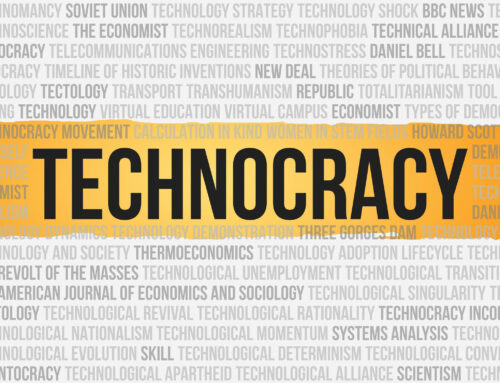I receive the latest releases from the Cultural Research Center located within Arizona Christian University. The Cultural Center is headed by the Center’s Director of Research Dr. George Barna. I have copied the latest information sent to me in a form email letter. I sincerely hope everyone finding themselves here now will take the time to click on the link in the letter below and spend time learning the latest findings which can be valuable in our knowing how to approach and what to say in our being disciples of the Lord Jesus Christ in spreading the gospel.
Ken Pullen
Wednesday, April 28th, 2021
ACP — A Crooked Path
America’s Most Popular Worldview — Moralistic Therapeutic Deism: Dr. George Barna’s Cultural Research Center’s Latest Release
Dear ______________,
You might remember the term “Moralistic Therapeutic Deism”—the popular “feel-good” brand of Christianity identified among Christian teens some 20 years ago.
It preached a watered-down, culturally driven “good news.” That God wants us to be happy. Good people go to Heaven. The purpose of life is to feel good about ourselves and to be kind to others. Teenagers flocked to this softened, distorted Christianity that required little of its followers—one that ignored human fallenness or sin, the need for salvation, or obedience to God.
As the Cultural Research Center looked deeper into the worldview of American adults, today’s release from the American Worldview Inventory 2021 reveals that what was once a rogue belief system found mostly in Christian teen culture now permeates the broader society and the Christian church.
In fact, of the eight worldviews measured in the AWVI 2021, Moralistic Therapeutic Deism is the most popular worldview in the United States today.
Specifically, the CRC research found that nearly four out of 10 adults (38%) are more likely to embrace elements of Moralistic Therapeutic Deism than any other popular worldview, including Biblical Theism (or the biblical worldview), Secular Humanism, Postmodernism, Nihilism, Marxism (along with its offshoot, Critical Theory) and Eastern Mysticism (also known as “New Age”).
Unsurprisingly, Moralistic Therapeutic Deism is most prevalent among those under 50, who came of age spiritually as this well-intentioned but misguided philosophy was taking root.
This latest report from CRC’s Director of Research Dr. George Barna is full of information and groundbreaking data about the cultural embrace of Moralistic Therapeutic Deism (or MTD)—explaining its history as well as its beliefs and behaviors. Here are a few more key findings:
- Although three out of four people (74%) who embrace MTD consider themselves to be Christians, only one-sixth (16%) are actually born-again based on their theology.
- The vast majority of this group holds beliefs that conflict with basic biblical teaching. For example, they
- do not believe that people are sinful and need salvation through Jesus Christ (91%);
- trust sources other than the Bible for moral guidance (88%);
- contend that good people get to Heaven through good behavior (76%);
- do not believe that the Bible is true and reliable communication from God (71%).
- People drawn to MTD are more likely to engage in biblical faith practices than they are to hold biblical beliefs. Of those, 13% engaged in a series of faith practices that are robustly biblical (Bible reading, praying to and worshiping God, confessing personal sins, and pursuing God’s will for their life), but less than 1% typically endorse biblical teaching and follow through on those matters.
- Of those most drawn to MTD, almost half are Church of Rome Catholics, and the second-largest church group are traditionally black, Protestant congregations. Among racial and ethnic groups, Hispanics showed the greatest alignment (52%). About six out of 10 self-identified lesbian, homosexual, bisexual, transgender, and queer adults consistently engaged with MTD. Those associated with Islam and Judaism were more likely than average to engage with MTD.
Certainly, this latest AWVI 2021 release identifies significant challenges.
But we also see great opportunity in these latest findings.
As Dr. Barna reminds us, “It seems that most of these folks want to do the right thing; they simply have been led down the wrong path toward achieving that end.”
On a practical level, the report identifies a number of specific areas where those under the sway of Moralistic Therapeutic Deism might be turned back to the truth. And that’s good news.
For me, this latest report is another powerful reminder of the importance of biblical worldview training—at every stage of life. Those wrong views about what it means to be a Christian learned in the teen years stuck with people, still defining their worldview as adults.
We must be strategic in training people who identify as Christians to embrace a biblical worldview. That requires, among other things, a recognition of man’s fallen nature (“all have sinned”), a turning away from sinful conduct, and a recognition that only embracing the sacrifice of Jesus Christ for us opens the door to a loving and holy God in Heaven.
At Arizona Christian University, we are committed to helping our students know and apply the biblical worldview. And, through the Cultural Research Center, we are committed to providing research and resources needed to increase the biblical worldview in our culture.
As ever, I pray that you will continue to partner with us in this vision to transform culture with truth, especially as we work to rebuild the biblical worldview in our communities and nation.
Yours for equipping Christian leaders,
President Len Munsil, B.S., J.D.The full American Worldview 2021 Release #2: “Introducing America’s Most Popular Worldview—Moralistic Therapeutic Deism,” is available on the Cultural Research Center’s Research page.








Leave a Reply, please --- thank you.